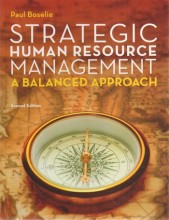Introduction to Valuation: The Time Value of Money - Future Value and Compounding
6 important questions on Introduction to Valuation: The Time Value of Money - Future Value and Compounding
What do the folowing abriviations mean? FV-- FVIF(r,t) -- PV -- r -- t--
FVIF(r,t) = Future value interest factor for a sum of money invested at r per cent for t periods
PV = Present value
r = Interest rate or discount rate
t = Number of periods
What means time value of money?
The amount investment is worth after now or more periods is?
- Higher grades + faster learning
- Never study anything twice
- 100% sure, 100% understanding
What is compounding and what does it result in?
Compounding the interest means earninginterest on interest Interest earned on the reinvestment of previous interest payments. So -->
compound interest Interest earned on both the initial principal and the interest reinvested from prior periods.
What is the difference between single period and more than one period?
More than one --
What will be our $100 be worth after 5 years?
OR 1.1Yhighx5=
You 100$ will grow to: 100*1.6105=161.05$
The question on the page originate from the summary of the following study material:
- A unique study and practice tool
- Never study anything twice again
- Get the grades you hope for
- 100% sure, 100% understanding































